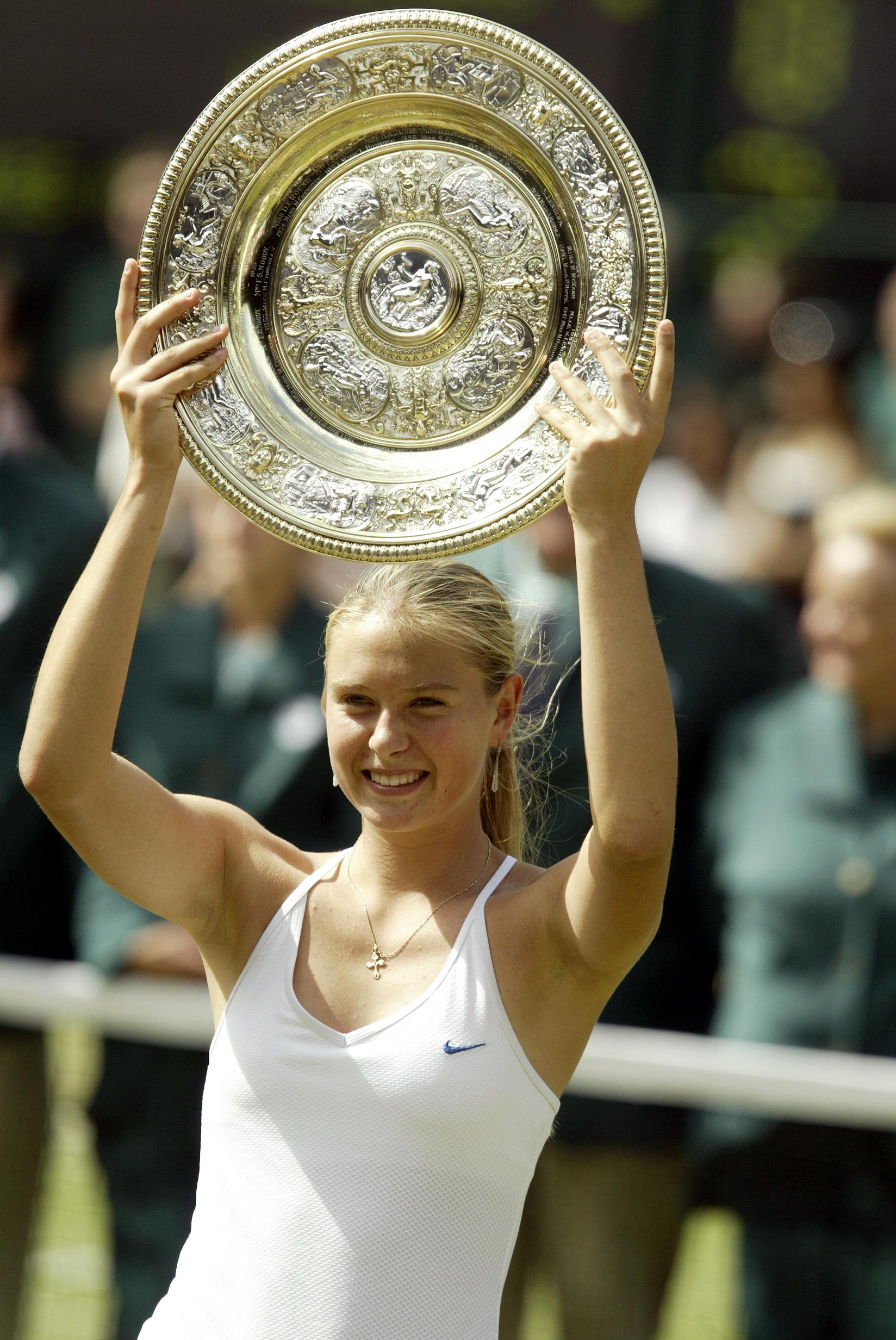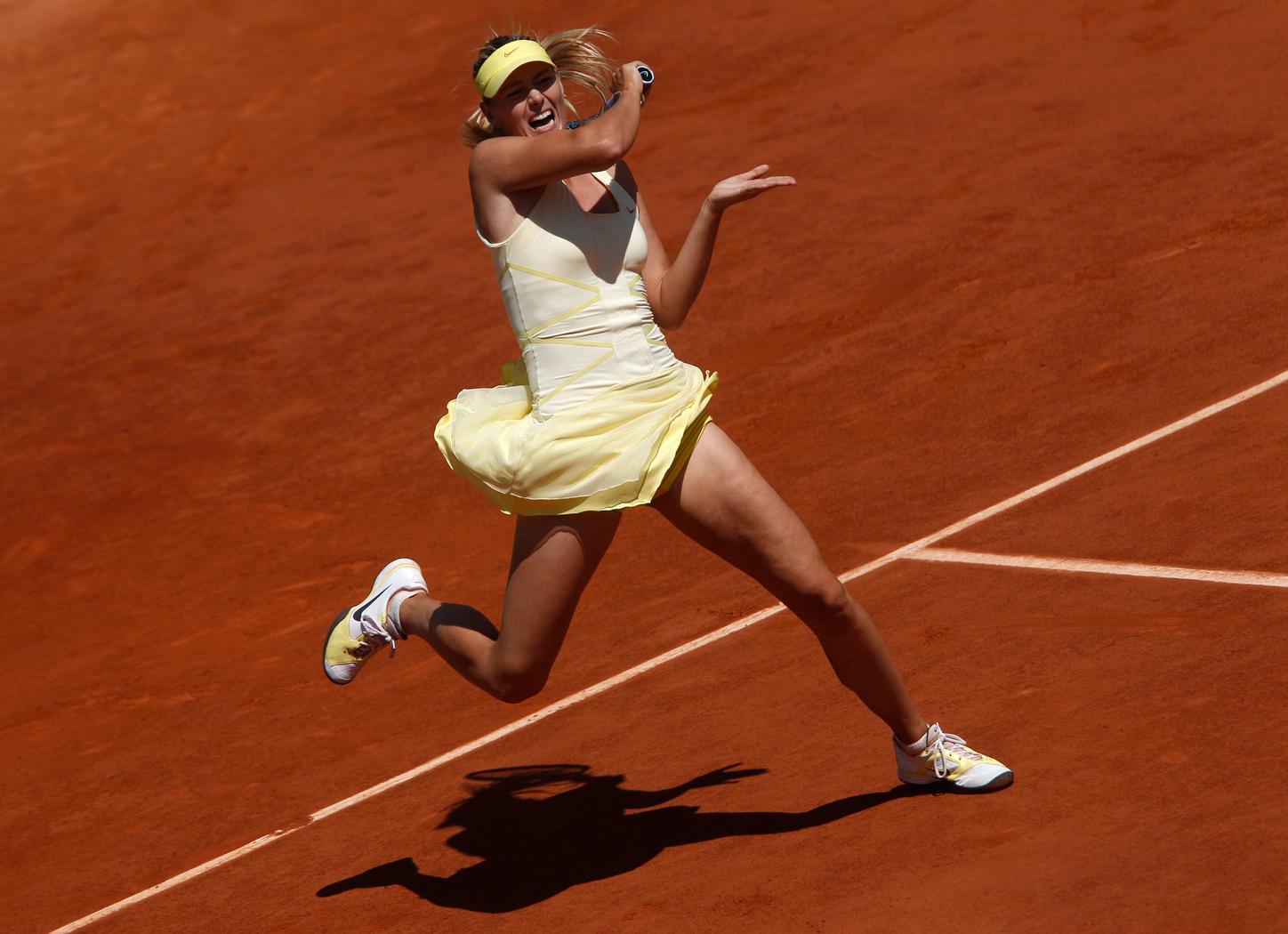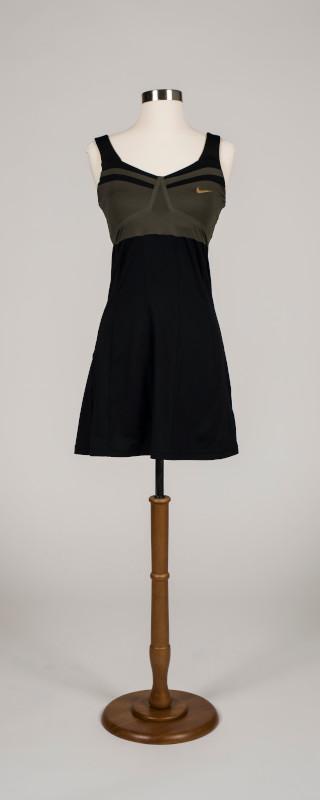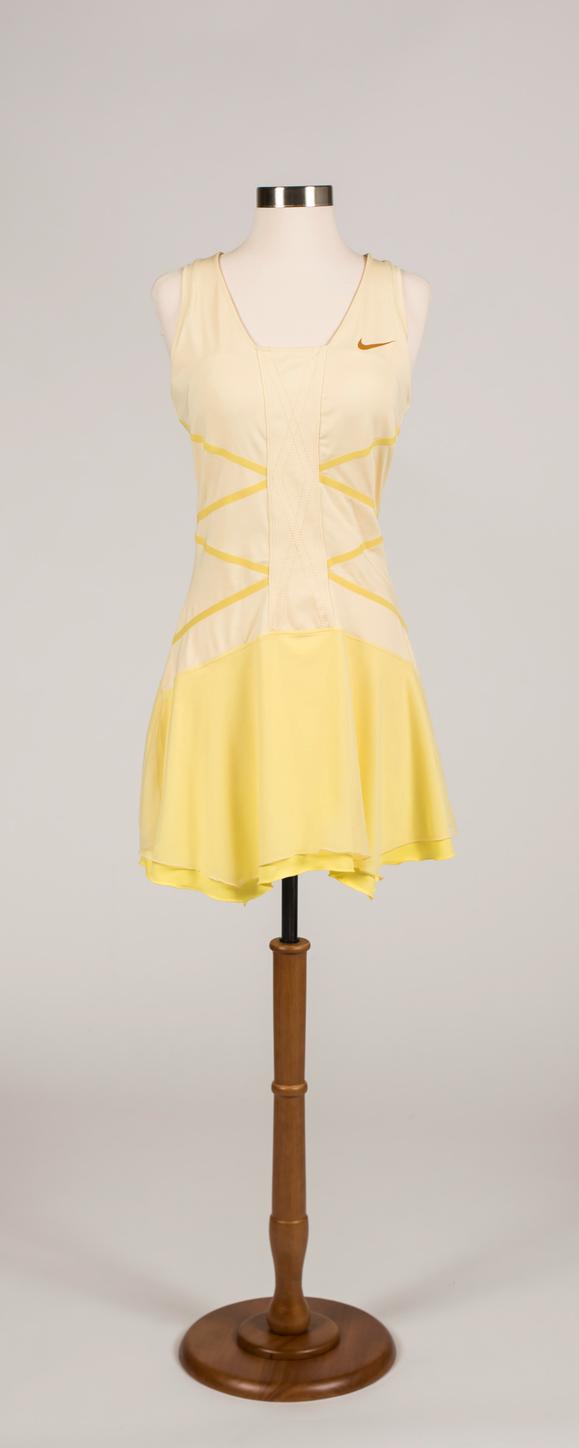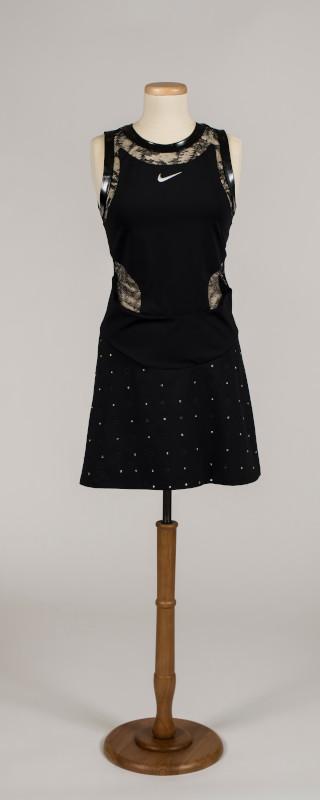Maria Sharapova is one of the most recognizable names in tennis history. She is known not only for her on-court achievements but also for her resilience, global appeal, and business acumen. One of only ten women in history to complete a career Grand Slam in singles (joining Maureen Connolly, Doris Hart, Shirley Fry, Billie Jean King, Margaret Court, Chris Evert, Martina Navratilova, Stefanie Graf, and Serena Williams), she captured five major singles titles over ten years, highlighting her adaptability and competitive spirit across all surfaces. Her Grand Slam victories include Wimbledon in 2004, the US Open in 2006, the Australian Open in 2008, and two titles at Roland-Garros in 2012 and 2014.
Sharapova was born on April 19, 1987, in Nyagan, Russia. She was introduced to tennis at a young age when Aleksandr Kafelnikov, father of Russian tennis star Yevgeny Kafelnikov, gave Maria her first racquet in 1991. At just six years old, Sharapova’s potential caught the attention of Martina Navratilova, who recommended she train in the United States. By 1995, she had joined the famed IMG Academy in Florida under the guidance of Nick Bollettieri—a move that laid the foundation for her future stardom.
Sharapova first rose to prominence in the tennis world in November 2000 when, at just 13 years old, she claimed the title in the girls’ 16-and-under division at the prestigious Eddie Herr International Junior Tennis Championships (as of 2023 known as the IMG Academy International Tennis Championships). Her standout performance earned her the tournament’s Rising Star Award, a recognition given to young players showing exceptional promise.
While continuing to compete on the junior circuit, Sharapova made her professional debut in 2001 at age 14 at an ITF clay court event in Sarasota, Florida. Though she lost in the first round, she earned her first WTA ranking point and $700 in prize money. In 2002, she made impressive runs to the finals of the girls’ singles events at both the Australian Open and Wimbledon. At just 14 years and 9 months old, she became the youngest player to reach the Australian Open junior final (a record that has since been broken). That same year, Sharapova rose to a career-high ITF junior world ranking of No. 6 on October 21. Over the course of her junior career, Sharapova captured three singles titles and finished runner-up in five others, including the two Grand Slam event finals in 2002. She compiled an impressive win–loss record of 47–9 in junior competition.
By 2003, her first full season on the professional women’s tour, Sharapova had claimed her first WTA title and was awarded WTA Newcomer of the Year. A year later, she stunned the tennis world by winning Wimbledon, defeating top players including Lindsay Davenport (semi-finals) and two-time defending champion Serena Williams (finals). Later in 2004, Sharapova faced Williams again in the final round and rallied from 4-0 down in the third set of the season-ending WTA Tour Finals to win 4-6, 6-2, 6-4.
Sharapova’s game was built on a fearsome backhand, an aggressive baseline style, and a powerful serve. Her competitive drive earned her the World No. 1 ranking for the first time in 2005, a position she would hold for 21 weeks overall and reclaim in five separate stints: August 22 to 28, 2005, September 12 to October 23, 2005, January 29 to March 18, 2007, May 19 to June 8, 2008, and June 11 to July 8, 2012. In total, Sharapova spent 408 weeks ranked inside the WTA Top 5.
At the 2006 US Open, Sharapova was the third seed and defeated three future Hall of Famers on her way to claiming her second major singles title: Li Na (24) in the fourth round, Amélie Mauresmo (1) in the semifinals, and Justine Henin (2) in the finals. Sharapova's 19-match win streak was snapped by Henin in the semifinals of the WTA Tour Championships, denying her the year-end World No. 1 ranking. Sharapova took the start of the 2007 season by storm. With Henin's withdrawal from the Australian Open, Sharapova was the top seed, reaching the finals for the first time, reclaiming the No. 1 ranking.
Persistent shoulder injuries tested her physical limits, requiring surgery and multiple comebacks. Nevertheless, Sharapova fought through adversity and consistently rebounded with impressive victories. From 2003 to 2015, she won at least one WTA title, a streak lasting 13 years; only three women—all Hall of Famers—have longer streaks: Martina Navratilova (21 years), Chris Evert (18 years), and Stefanie Graf (14 years).
In 2008, Sharapova did not drop a set or face a tiebreak on her way to becoming the first Russian to win the Australian Open. In 2012, she completed the career Grand Slam by winning at Roland-Garros, her first major title victory since shoulder surgery four years prior.
Sharapova was nominated to the Russian Fed Cup Team six times, participating in five ties over four years (2008, 2011-12, and 2015). After withdrawing from the 2008 Beijing Olympic Games due to injury, Sharapova proudly participated in the 2012 London Olympics and won the silver medal in singles. In 2014, she claimed her second singles title at Roland-Garros, in a 3+ hour 6-4, 6-7(5), 6-4 win over Simona Halep.
Her career was not without controversy. In January 2016, Sharapova tested positive for Mildronate (commonly known as meldonium), which had been added to the banned substance list, effective January 1, 2016. Initially handed a two-year suspension, her ban was later reduced to 15 months through appeal to the Court of Arbitration for Sport (CAS). After serving her adjusted ban, she returned to the tour in 2017. In 2018, she reached the quarterfinals at Roland-Garros and achieved a ranking of World No. 21. In 2019, she reached the quarterfinals of the Australian Open and competed in her 800th match.
In February 2020, Sharapova announced her retirement from professional tennis, ending a nearly two-decade career marked by highs, comebacks, and global fame. Throughout her career and into retirement, Sharapova has taken on the role of entrepreneur, endorsing and investing in multiple business ventures in the wellness, fashion, and athletic spaces, while also founding and serving as CEO of Sugarpova, a confectionery company.
Maria Sharapova's legacy endures as one of her generation's most successful and marketable athletes—both on and off the court.

